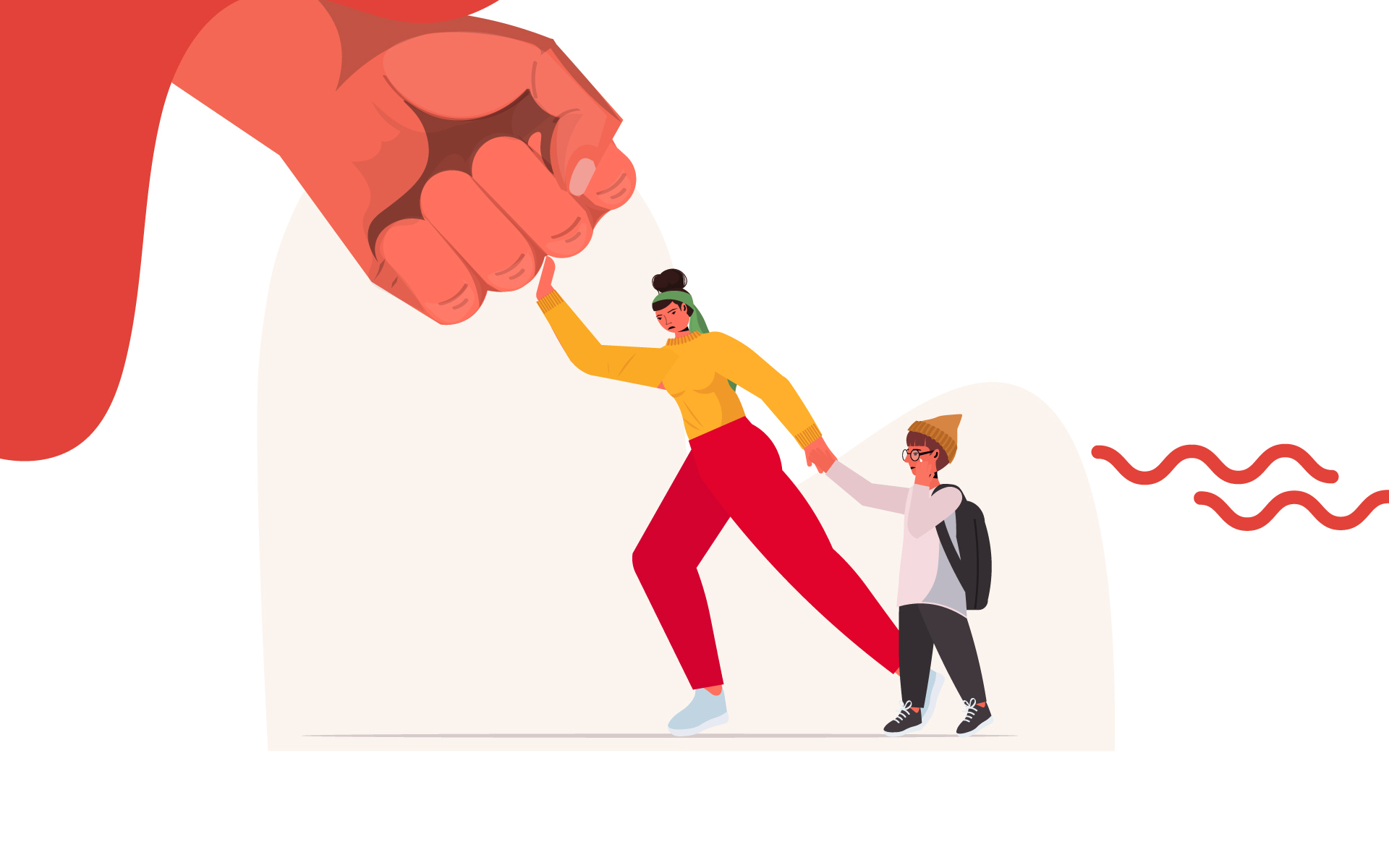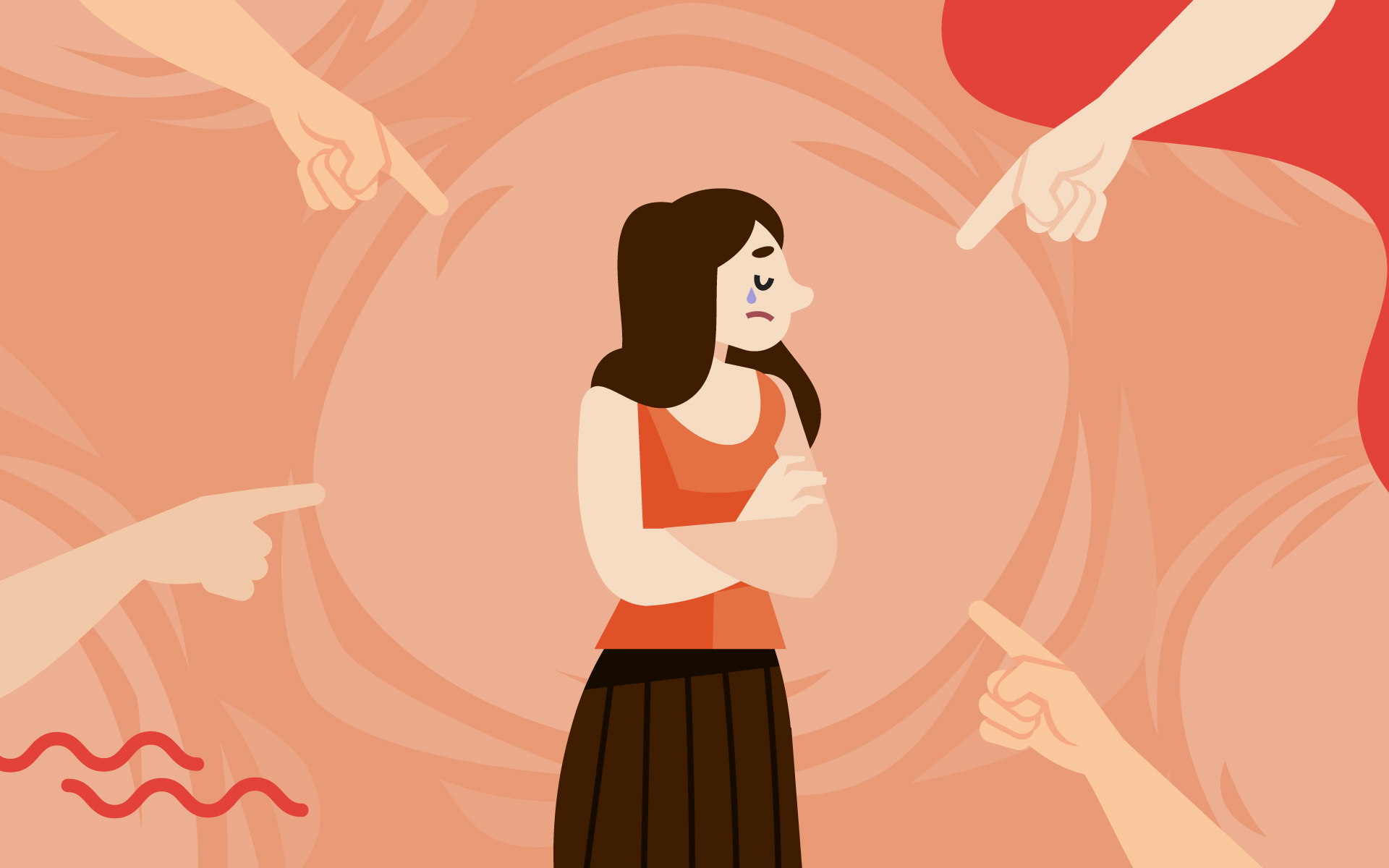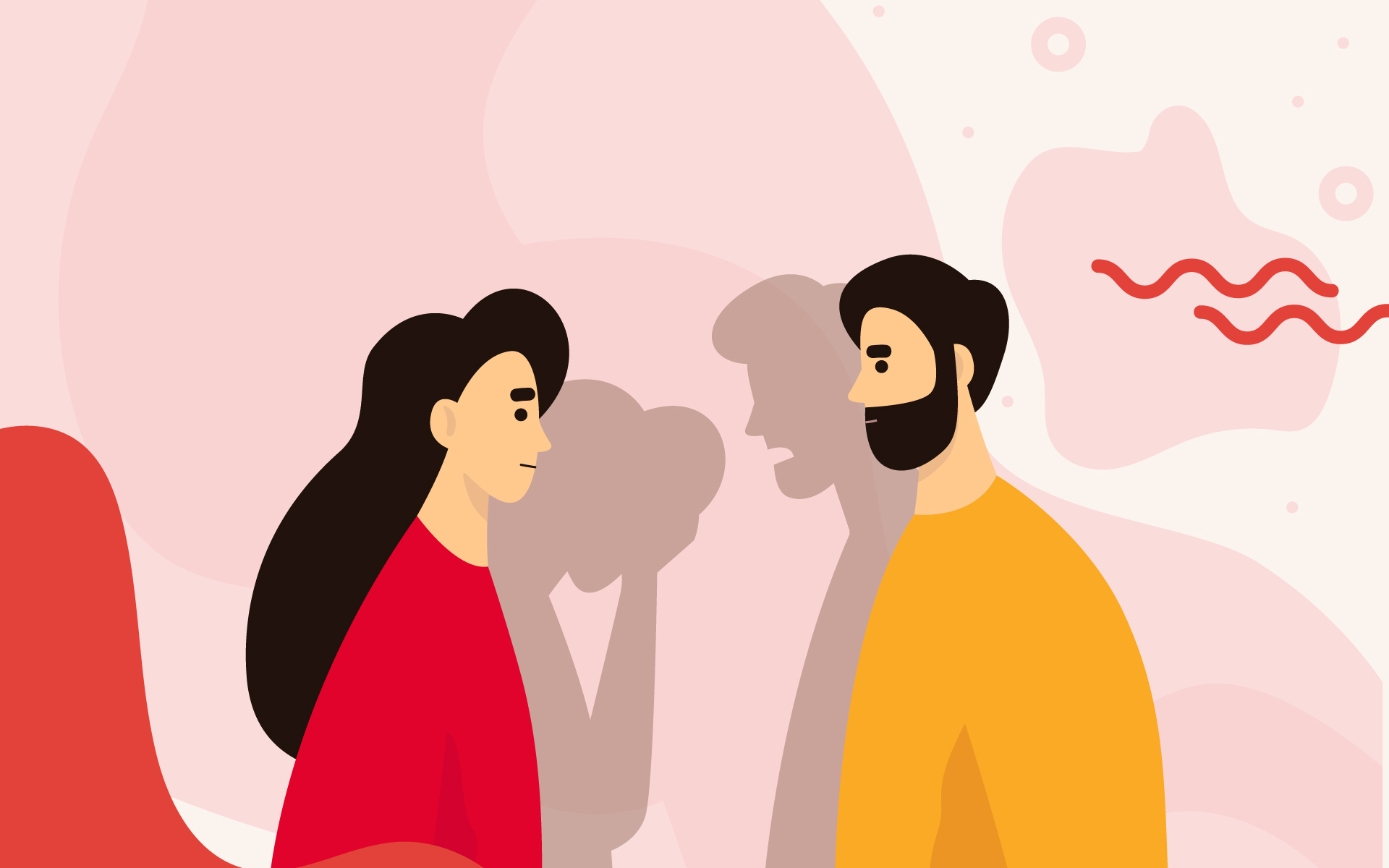Author: Domain.ME
Thin walls between apartments sometimes reveal much more than children’s play and loud music. Try to remember if you ever heard a loud quarrel between spouses that you were afraid was much more than a little domestic spat? Or have you ever witnessed that not all parents solve problems with their children just by talking to them?
Unfortunately, it is very likely that most of you who read this text have, at some point in your lifetime, played the role of a witness or a victim of domestic violence. According to the official data from the Police Department for 2019, the number of victims of domestic violence was 1843, of which 702 were men and 1141 were women. Of the total number of victims, 297 were minors. However, these data remain only as testimonies of how many victims actually went through the entire process – recognized domestic violence, asked for help, and then reported the perpetrator to the competent authority.
But it is important to ask ourselves – how many victims have never reported violence? How many see their family as a source of fear and anxiety day in, day out, instead of as a safe haven? How many of them still suffer violence today? Could some of them be the people we are in contact with every day, but we just don’t know that not all is right back in their homes?
How to recognize domestic violence?
The disturbing fact is that prejudices regarding domestic violence are still in place, and victims find it difficult to recognise all the actions that ought to be classified as violence. Inflicting or attempting to inflict bodily harm, coercion into sexual intercourse, restriction of freedom of movement or communication with certain persons, insults and death threats addressed to the victim or acquaintances of the victim are just some of the forms of violence. Although as a society we wait to react only when physical violence occurs, we must be aware that victims undergo other forms of violence before suffering physical injuries. Psychological violence is often not recognized by most victims. And while we must keep in mind that the alarm should go off whenever we notice that not everyone is equal in a family relationship, or that one side experiences fear, this is not always the case. As they say in the Women’s Rights Centre,“Domestic violence and abuse have only one purpose: to achieve and maintain complete control over the victim.”
We often have no idea what is happening behind someone’s closed door. Should we ‘meddle’ in the private lives of others, is the question often asked in our society. However, if we notice violence and do not react – where can this take us? Could your neighbour or friend who is now a victim of domestic viol ence one day become a victim of murder? In order to avoid the worst-case scenario, a timely reaction is necessary.
ence one day become a victim of murder? In order to avoid the worst-case scenario, a timely reaction is necessary.
Messages of victims of domestic violence should be read between the lines – they are often scared, upset, anxious, they tend to talk about jealousy or possessiveness of their partner, have a need to answer the phone promptly and regularly and inform the partner about all their activities. If physical violence actually occurs, victims cover up bruises and scratches in order to cover for the perpetrator or justify them with imaginary accidents and allergies.
What can we do at that moment? Is it moral to stay silent? Can showing support to and understanding the victim be of assistance or should something concrete be done?
Best advice for victims of violence – call 080 111 111
Whether you know someone who suffers violence, you hear a situation that may suggest that the same thing is happening in a family you know or you yourself recognize that you are a victim of domestic violence – the best advice is to call the SOS Helpline 080 111 111, which was launched in partnership with the Ministry of Finance and Social Welfare of Montenegro. The helpline is available 24/7, and calls are free from all landline and mobile networks. The service is also provided in the Albanian language. Anonymity and confidentiality are guaranteed, and taken that every adult has the right to independently decide if and when to report violence to the competent authorities, respect for the integrity and autonomy of the victim is ensured.
 Every victim can call 080 111 111 and talk to experts who can inform the victim on their rights and possibilities for protection, as well as the necessary legal assistance. Most importantly, through emotional support conversations and psychological counselling, they are working with victims to overcome trauma and empower them to get out of a violent environment.
Every victim can call 080 111 111 and talk to experts who can inform the victim on their rights and possibilities for protection, as well as the necessary legal assistance. Most importantly, through emotional support conversations and psychological counselling, they are working with victims to overcome trauma and empower them to get out of a violent environment.
In urgent situations, with the consent of the victim, the National SOS Helpline for Victims of Domestic Violence can communicate with relevant institutions (the Police, Centres for Social Work) and ask them to react immediately, stop the violence and protect the victim. Furthermore, if the victim so wishes at any time, the National SOS Helpline can help him/her get to find accommodation in a safe and secure location.
Why do we say that the best advice is to call this number?
Often all of us, even with the best of intentions, like to play the role of psychologist, give advice or get into other people’s roles and talk about how they should behave. In addition to the unreserved support of the community, every victim of violence needs professional support that will instil confidence in them that they are not alone in this whole process, and explain which legal mechanisms are available to them.
 When it comes to talking about the violence that the victim suffers from their partner, parent or sibling, in Montenegro, this is still a topic that can unjustifiably cause the victim to feel the worst feeling – shame. The SOS Helpline provides anonymity in the most difficult moments and enables the victim to break free of restraint and for the conversation about violence to finally begin.
When it comes to talking about the violence that the victim suffers from their partner, parent or sibling, in Montenegro, this is still a topic that can unjustifiably cause the victim to feel the worst feeling – shame. The SOS Helpline provides anonymity in the most difficult moments and enables the victim to break free of restraint and for the conversation about violence to finally begin.
Isolation during the pandemic has also been the cause of an increase in the number of cases of domestic violence
During 2020, the year marked by the coronavirus pandemic, the National SOS Helpline, as they claim, received 2,936 calls – which is 10% more than the 2,661 calls received during 2019. During the first wave of anti-pandemic measures (March-May 2020), which were the most restrictive and involved home isolation, the number of calls during some weeks has seen an increase by up to 30%.
 Isolation, the focus of institutions on the implementation of measures against the coronavirus, job loss, increased poverty, reduced contact with the environment – all of that makes the victim more vulnerable and open to attacks, our interlocutors from the National SOS Helpline claim. All this increases their fears of what the future brings, reduces their ability to get information about help and support services and readiness to ask for assistance.
Isolation, the focus of institutions on the implementation of measures against the coronavirus, job loss, increased poverty, reduced contact with the environment – all of that makes the victim more vulnerable and open to attacks, our interlocutors from the National SOS Helpline claim. All this increases their fears of what the future brings, reduces their ability to get information about help and support services and readiness to ask for assistance.
There is no magic wand that could simply stop all the violence at some point. Still, what can each of us do?
Report violence if we witness or suspect it, support victims by talking with them over a cup of coffee or tea or let them know that we’re there for them, inform and educate ourselves about what violence is and how to recognize it – about all the possible things that if each of us did, at least for a year, would result in a better, fairer and safer environment for every member of our society.
Domestic violence must not be a topic that is not to be mentioned.
At the end of 2020, the company Domain.ME donated funds to the National SOS Helpline in support of their work and commitment to curing the local community of one of the most difficult problems that families face. In this way, the company invites everyone who is able to help the victims of domestic violence in any way, because let’s not forget, a healthy family is the basis of every society.


























